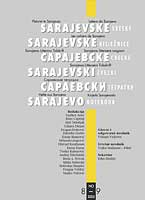
Kanon u “međuknjiževnim zajednicama” i interkulturna povijest književnosti (u tezama)
The theme of this issue of Sarajevo Notebook is The National Literary Canon. Within the framework of this thematic block, literary theorists and critics from the former Yugoslavia try to analyse the concept of national literary canon and its implications in the post-Yugoslav reality of the Balkans. In doing so they focus their attention on the basic theoretical principles for determining the proper criteria for the identification of canonical writers and on the impact of dominant ideologies and political power centres on the formation of national canons in literature. Zvonko Kovač, theorist from Croatia, underscores the meaning and necessity of intercultural history of literature in inter-literary communities, which should contribute to understanding, democratisation and further canon building in South Slavic literatures.
More...